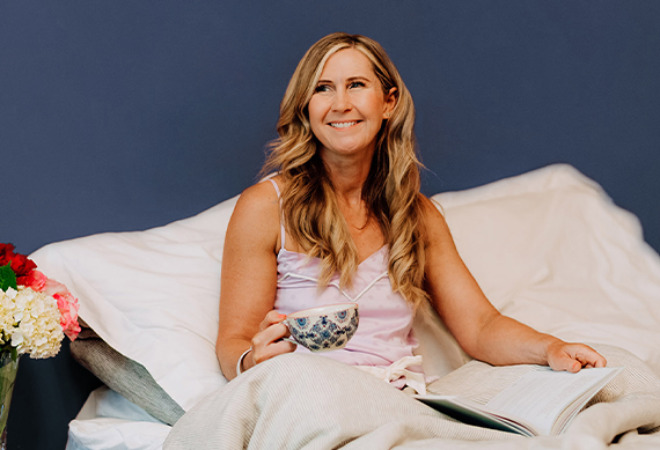Research shows that sleeping in on the weekend or over holiday periods, could interrupt our internal body clocks, potentially resulting in health issues.
HAVE YOU HEARD OF ‘SOCIAL JET LAG’?
Experts have termed this ‘social jet lag’, where irregular sleep patterns during the weekend or holiday times, can leave you feeling groggy and tired during the week, resulting in slower memory and reaction times.
Sleep experts remind us that maintaining a regular sleep pattern – and therefore avoiding “social jet lag” – is vital for good health. Circadian rhythms regulate all our daily cycles, including sleep. This follows the 2017 Nobel Prize for physiology or medicine, which was won by the three scientists who unravelled how our bodies tell time. The circadian body clock – or timekeeper in the brain – is the reason we want to sleep at night, but it also drives huge changes in behaviour and body function.
Aligning sleep with the body clock
Dr Karyn O’Keeffe, a Research Officer at the Massey University Sleep Wake Research Centre, explains a regular sleep routine that aligns with the day/night cycle is important for our health and well-being.
“Essentially, our sleep timing needs to line up with the day/night cycle, but often our lifestyle choices and behaviours interfere with that, particularly over weekends, and that’s when we experience this social jet lag,” she says.
“People usually go to bed later at the weekend and then sleep in the next morning, which creates a change in our circadian body clock over that time.”
“That misalignment between body clock time and the time we need to get up for work or school means we can experience jet lag symptoms when we try to flick back to our usual routine come Monday morning – because our newly adjusted body clock is telling us we should still be in bed right now.”
O’Keeffe says the toll ‘social jet lag’ takes on our health is still being investigated, but a clear side effect of the phenomenon appears to be an increased body mass index (BMI). Other studies have also found it can affect cholesterol levels and the way glucose is processed in the body.
“So, healthy sleep is essential for overall well-being and it really is about more than just the amount of sleep you’re getting or how continuous that sleep is,” she says.
“When you get sleep is just as important. Our circadian body clock is strongly influenced by light, so exposure to light can have a big effect on our sleep timing.”
“Screen time before bed is a big problem these days. The blue light emitted by mobile phone and computer screens reduces the production of melatonin which is a hormone that can influence our sleep timing. This makes it harder for us to fall asleep and wake up feeling refreshed in the morning.”
Sleep experts indicate it is a time to focus on the sleep issues many people have, and the health issues that can arise as a result. Preparing for bed with the right routine and having a bed that provides the correct level of support and comfort, will help enable restful sleep.
Simply answer a few quick questions and we’ll recommend the best mattress for your sleep profile. We can also send you a customised report, which you can take into a local Sealy stockist so you can experience your recommended bed.




